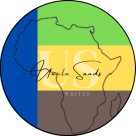“Human Rights Day” is a sellout position!
It seeks to sanitise and whitewash the horrific abuses perpetrated against the natives of this land. It hides the bloodshed, the suffering, and the trauma of our people behind a veneer of “progress” that is perpetually deferred.
Calling it “Human Rights Day” does not honour our ancestors; it erases their suffering. It forgets the Sharpeville Massacre of 1960, where sixty-nine (69) Black men, women, and children were slaughtered — many of them shot in the back — for simply protesting the apartheid pass laws.
But it doesn’t stop there.
“Human Rights Day” also dismisses the Langa Massacre of 1985, where apartheid’s armed thugs opened fire on a funeral procession, murdering at least twenty (20) and injuring many others, simply because the mourners were Black and dared to exist in defiance of the system that denied them their humanity.
I’ve heard people in the media talk about human rights in Palestine, Sudan, and the Congo — nations where blood is still spilled, where pain still echoes through the generations… While I don’t have a problem with that in principle, I feel like it minimises or downplays today’s significance in the eyes of locals.
The South African media is as guilty as the government in this regard.
Why not centre the human rights of the natives of Occupied Azania, the ones who continue to exist in a neo-apartheid nightmare of extreme inequality and violence, the ones whose lives are still not valued equally by their so-called liberators?
Our “freedom” is a hollow, pyrrhic victory when the new dispensation has made us the most unequal society on the planet, when we sit atop a murder rate that is unparalleled in the world. The government of the day may claim to be a “champion of human rights,” but under the ANC’s rule, this country remains a land of contradictions, “two nations in one” — where the rights of the poor and disenfranchised are continually trampled while the elites gorge at the trough.
The legacy of apartheid has not been dismantled; it has merely shifted form, hidden behind corporate deals, diplomacy, and rainbow nation rhetoric.
We must demand that this day mean something more than a token gesture, more than an act of appeasement, least of all to salve the conscience of the perpetrators of the brutality! We must reclaim our history, our truth, and honour the ninety (90) lives lost in Sharpeville, Langa, and every other massacre that has been swept under the rug in this criminal colony.
We owe it to our ancestors, our communities, and ourselves to bring their stories to the forefront, to refuse to allow them to be erased from the pages of history by the very system that caused their suffering.
Our fight is far from over. It is not enough for us to simply remember… We must act!
Demand reparations.
Demand equal justice.
Demand land.
Demand resources.
Only then can we begin the real work of liberation and healing. Only then can we say that we are truly free.
I think we’ve had our fill of symbolism without substance. No amount of dove T-shirts, rugby World Cup wins, or “Phillip is here” will change the lived reality of the bulk of our population.
If we truly want to build a new South Africa — one based on justice, equity, and respect for all of us, not just the privileged few — then we must take this fight back to the streets, like our leaders did on this day in 1961 and 1985, back to our communities, as the youth and civic groups did at the height of political repression, and lastly, back to the ballot box, where we have already seen how suddenly power can be shifted by the voters. We need a new mass movement of our time. Our strength lies in our numbers, and in the fact that they need our votes for legitimacy.
Peace and Black Power.
